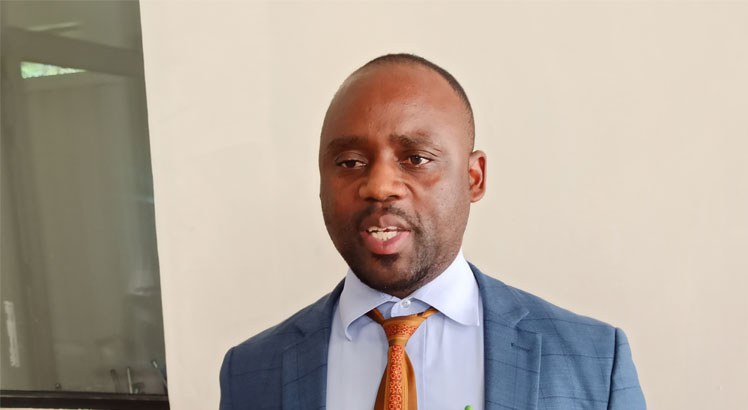Local authorities fail to impress?
There is a general perception that Local Government Authorities are not effectively enforcing by-laws on a wide range of areas such as street vending, land development, water pollution and settlement in restricted areas, among others.
Our Lilongwe Assistant Bureau Chief SUZGO CHITETE caught up with Malawi Local Government Authorities executive director HADROD MKANDAWIRE on this and other matters.

Would it be wrong to conclude that the Local Government Authorities are failing to discharge their constitutional mandate?
We are aware of this perception. To some extent, this narrative might be true depending on the side one is standing. If you are outside the local government system, you would be justified to make such a hasty and unfair conclusion. However, if you are inside the system and appreciate the practical aspect of our devolution, you would greatly sympathise with the local government authorities. The local government authorities have put up a legal framework at the local level which is anchored in the subsidiary legislation also called by-laws. They have also put up systems and mechanisms and to enforce the by-laws in all the relevant sectors. However, due to the dragging to fully devolve the political authority as reasonably envisaged by the legal and policy framework that provides for local government authorities and decentralisation, some political elites at the central level manipulate this gap to call the shots at the local level. There are a number of convenient examples where the political clique has intervened into key decision-making of local government authorities. The Soche Hill illegal settlement case is an example.
Recently, some ward councillors who provide oversight to the secretariats are answering serious criminal charges such as theft of public resources and corruption. Doesn’t this justify central government’s usurping of power for local authorities?
It is regrettable that some councillors are, indeed, answering such charges. However, as we speak there is no ward councillor who has been convicted. One of the fundamental principles of criminal law is the presumption of innocence until proven otherwise. Suffice to say Malga as an umbrella body of local government authorities, does not condone any form of abuse and or theft of public resources. Let me take this opportunity to condemn in strongest terms theft and abuse of public resources at the local level. It should also be noted that theft of public resources and corruption are not confined to the local authorities, as the vices have not spared the central government. Actually, the scale of the vice and number of reported cases is proportionally higher at the centre than at the local level. It therefore, follows that the Government cannot use the few documented cases happening at the local level, as a justification to be micromanaging the local authorities.
How has been the working relationship with the new Minister Richard Chimwendo Banda?
He has been in this new role for barely two months, however, we commend him for bringing back morale among key technocrats in the local government authorities. So far, we have not noted any posture from the minister to micromanage the local authorities. He is letting the local government authorities do their own business as provided by the legal and policy framework. We trust this trend will continue. However, we have also noted some key missed opportunities within the same period and this includes the extended delays to table the Local Government Amendment Bill, the push for bailout package and addressing mobility challenges for controlling officers and ward councillors. We will support the minister so that the foregoing are attended to with the urgency they deserve. We take pride in that he has already recognised the important role of Malga as an umbrella body of local government authorities, and, he has opened his door for engagement, this is crucial for a meaningful policy dialogue.
Where are the local government authorities on the implementation of the Malawi 2063, particularly the urbanisation and industrialisation pillar?
Despite operating in an extremely difficult environment where resources and natural disasters are major set-backs, some local authorities are becoming more innovative and resilient. A convenient example would be Nkhotakota, which has resorted to municipal bonds as an alternative source of finance for it’s urbanisation and industrialisation projects. There is also Machinga, which has gone into public-private partnership with companies such as INNO Build. There is also Mzuzu City Council, which is working on a special economic zone with the support of partners while Nsanje District Council has opened Chididi Fruit Processing Plant. Chitipa, Rumphi and many other councils also have exciting plans. However, huge financing gaps still exist, and, that is where government and development partners need to come in. It is also exciting that the forthcoming 17th Malga General Assembly, Malawi 2063 will prominently feature, and we are closely working with the National Planning Commission on how best to package the conversation on this.
Given an opportunity, what local government issues would you single out as requiring immediate attention?
For me, two key issues stand out, the long outstanding bail-out package, which would reposition the local government authorities as effective entities in implementation of Malawi 2063, and the Government complying with its legal and policy obligation on fiscal devolution such as sharing of ceded revenue with local authorities.





